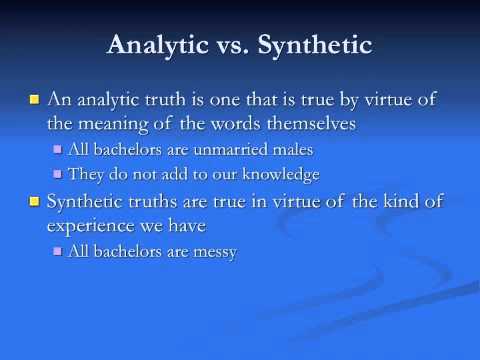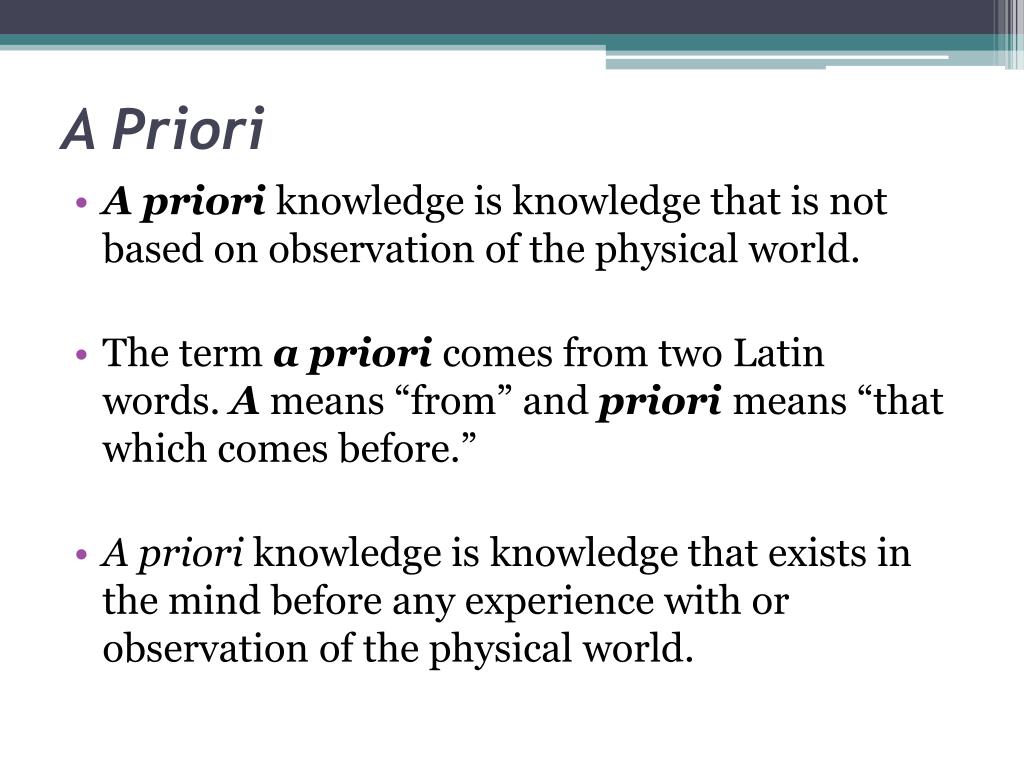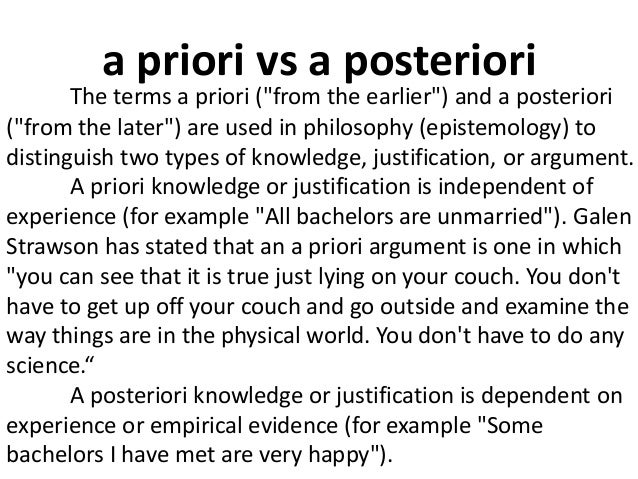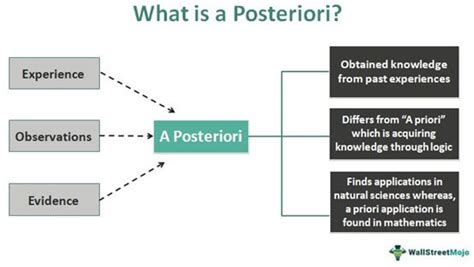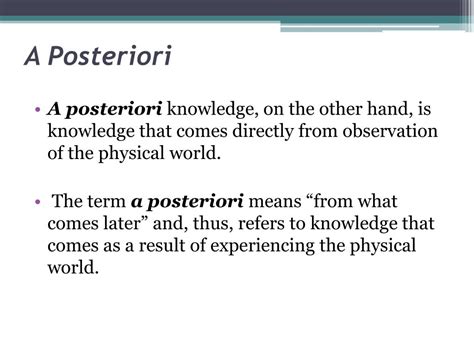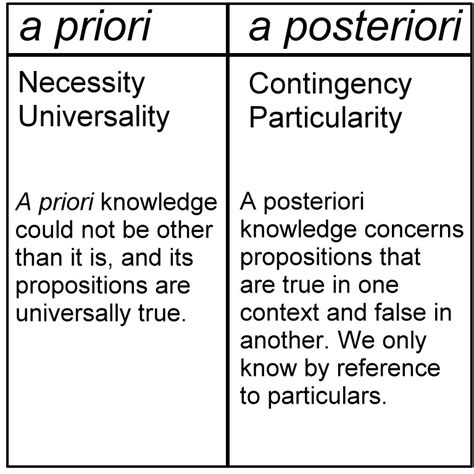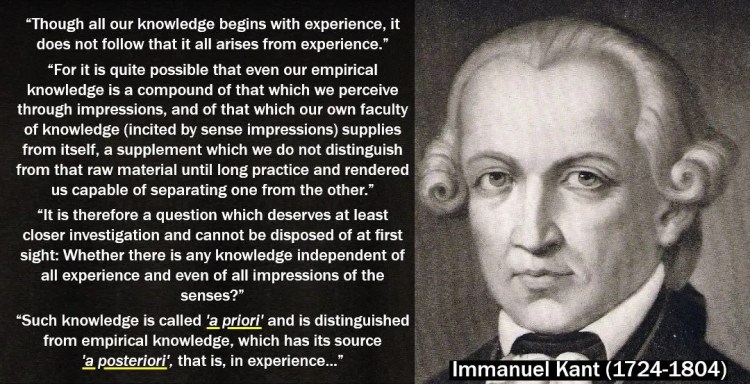|
home | what's new | other sites | contact | about |
||
|
Word Gems exploring self-realization, sacred personhood, and full humanity
Kant The Critique of Pure Reason a priori, a posteriori,
return to 'critique of pure reason' contents page
Immanuel Kant (1724-1804)
Why are these terms important? They refer to the limits, extent, and kinds of knowledge available to the reasoning the mind. Analytic: from Greek analyein, "unloose, release, set free” An analytic statement upacks, into the predicate, what is implied in the subject; for example, “All bachelors are unmarried men.” Nothing new is added or learned. Synthetic: from Greek synthetikos, "skilled in putting together, constructive” A synthetic statement adds something new (from experience), puts sensory items together in a new way resulting in knowledge; for example: “This cup is hot” has information that cannot be known by reason alone or by knowing the subject, the cup.
|
||
|
|

